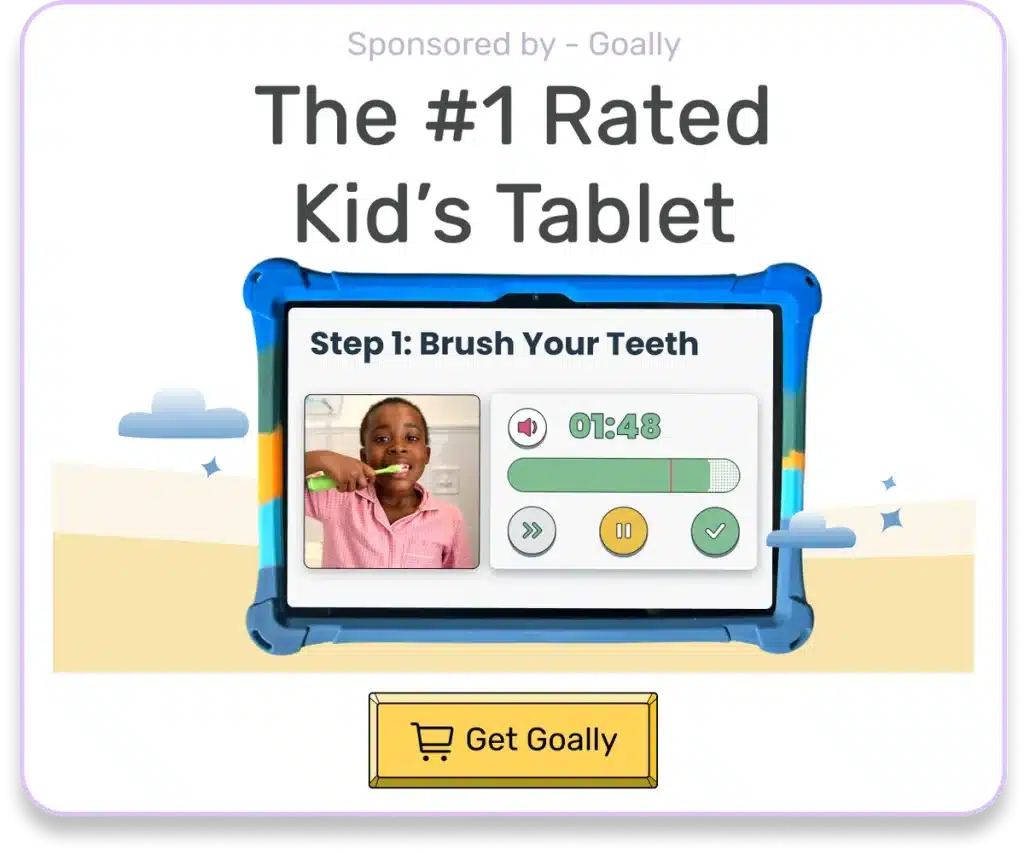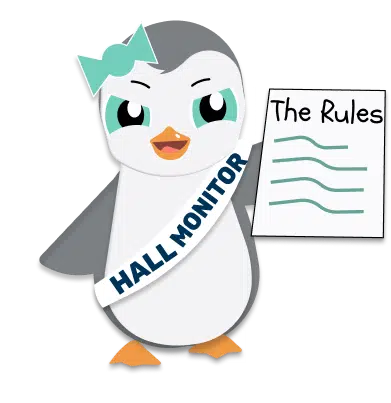As a childcare professional who has worked with many kids over the years, I know firsthand how concerning it can be when your toddler starts hitting at daycare. Toddler hitting at daycare is a common issue that many parents face. It’s understandable to feel frustrated, embarrassed, and worried when you get reports of your little one lashing out physically. In this post, I’ll share some insights on why toddlers hit, how to respond, and strategies to help curb the hitting behavior.
Table of Contents
Understanding the Reasons Behind Toddler Hitting at Daycare
Before we tackle the issue, let’s explore the possible reasons that could be causing your toddler to act aggressively. Gaining insight into these underlying factors will empower you to better address the situation.
| Reason | Description |
|---|---|
| Sensory Overload | For some neurodivergent kids or kids with thinking and learning differences, a busy daycare environment can cause sensory overload, leading to aggressive behavior as a coping mechanism. |
| Frustration | Toddlers are still developing their communication skills. When they struggle to express their needs or wants, they may become frustrated and resort to hitting. |
| Imitation | Children learn by observing others. If your child sees another child hitting, they may imitate this behavior. |
| Attention-seeking | Sometimes, toddlers may hit others to get attention from caregivers or peers. |
| Testing Boundaries | Toddlers are in a phase of exploring their environment and testing limits. Hitting can be a way for them to understand how their actions affect others and what consequences they might face. |
How to Respond When Your Toddler Hits
When you get the dreaded note or phone call that your toddler hit at daycare, it’s normal to feel a mix of emotions – embarrassment, anger, worry, helplessness. Take a deep breath. With a calm and consistent approach, this behavior can improve. Here are some tips:
- Stay calm and firm – Respond with a neutral tone, “I won’t let you hit. Hitting hurts.”
- Acknowledge feelings – “I see you’re angry. It’s okay to feel mad, but it’s not okay to hit.”
- Teach alternatives – Show them how to use gentle hands, their words, or other coping strategies. Practice when they’re calm.
- Avoid lecturing – Long talks are lost on toddlers. Keep responses short and matter-of-fact.
- Don’t hit back – It’s tempting to respond with, “How would you like it if someone hit you?” and a swat. But this only teaches that hitting is sometimes okay.
- Provide comfort and support – Negative behaviors often signal unmet needs. Offer emotional connection and reassurance.
Remember, responding to hitting is a process, not a quick fix. Stay consistent in your language and approach at home and work closely with your child’s teachers so everyone is on the same page.

Read more: Why is My Child Hitting Others?
Strategies to Address Toddler Hitting at Daycare
Now that we’ve identified the possible reasons behind the aggressive behavior, let’s discuss some strategies you can employ to help your child navigate their emotions and express themselves in a more appropriate manner.
1. Collaborate with Daycare Staff
Open communication with daycare staff is essential. Discuss your concerns and work together to implement consistent strategies both at home and in daycare. This joint effort will help your child understand that hitting is not acceptable, regardless of the environment.
Be proactive in sharing any relevant information about your child, such as triggers or calming techniques that work well for them. This way, the daycare staff will be better equipped to respond to your child’s needs and prevent potential incidents of hitting.
2. Teach Emotional Regulation Skills
Help your child identify their emotions and learn how to cope with them effectively. Here are some steps to follow:
- Encourage your child to express their feelings verbally or with gestures.
- Validate their feelings and help them understand that it’s okay to feel frustrated, angry, or overwhelmed.
- Teach them calming techniques, such as taking deep breaths or counting to ten.
Introducing your child to age-appropriate books and videos about emotions can also be a great way to help them understand and express their feelings better.
3. Offer Positive Reinforcement
When your child manages their emotions and refrains from hitting, make sure to praise their efforts. Positive reinforcement will encourage them to continue using appropriate coping strategies instead of resorting to aggressive behavior.
Remember to be specific with your praise, pointing out exactly what they did well. For example, you could say, “I noticed you took deep breaths when you were upset instead of hitting. Great job!”
4. Set Clear Boundaries and Consequences
Establish clear rules about hitting and ensure your child understands the consequences of their actions. Consistency is key; make sure to follow through with consequences every time they hit, and avoid making empty threats.
For example, you could implement a time-out system where your child is removed from the situation and given a chance to calm down. Be firm but gentle in your approach, and always explain why hitting is not allowed.
5. Provide Opportunities for Physical Activity
Physical activity can help release pent-up energy and frustration. Ensure your child has ample opportunities to engage in physical play, both at daycare and at home.
Consider enrolling your child in activities such as swimming, dancing, or martial arts to channel their energy in a positive direction. Regular physical activity can promote emotional well-being and help reduce instances of hitting.

Read more: How To Stop Toddler From Hitting: A Parent’s Guide
When to Seek Professional Help
If your toddler’s hitting persists despite your efforts, or if you notice other concerning behaviors, it might be wise to look for professional guidance. A pediatrician or therapist specializing in neurodivergent kids can help you identify underlying issues and develop tailored strategies for your child.
Early intervention can make a significant difference in helping your child develop healthier coping mechanisms and improve their overall well-being.

Goally | Apps That Build Behavior & Life Skills for Kids
Want to keep your child motivated while building essential behavior and life skills? Goally’s skill-building tablet is designed to celebrate small wins and help your child grow.
Our Behavior Tracker helps you reward your kiddo for specific skills, like “being kind” or “flushing the toilet.”
By setting clear expectations and rewarding their efforts, you foster a positive environment for your child to flourish in their behavioral skills journey.

Final Thoughts on Toddler Hitting at Daycare
While it can be distressing to learn that your toddler is hitting at daycare, remember that it’s a common issue that many parents face. By understanding the possible reasons behind this behavior and implementing the strategies mentioned above, you can help your child develop healthier ways to express their emotions and navigate social situations. Keep the lines of communication open with daycare staff and remain consistent in reinforcing boundaries and consequences. And, most importantly, be patient—helping your child learn how to manage their emotions is a process, but with time and effort, you’ll see progress.
Helpful Resources:
FAQs about Toddler Hitting at Daycare
Why is my toddler hitting others at daycare?
Toddlers often hit because they haven't yet developed the necessary language skills or emotional regulation to express their feelings and needs verbally. Common triggers include frustration, a need for attention, or feeling overwhelmed.
What should I do if my toddler is hitting at daycare?
It's important to work collaboratively with the daycare staff to understand the context and triggers for the hitting. Consistent responses from both parents and caregivers, focusing on teaching alternative behaviors, are crucial.
Can hitting be a sign of something more serious in my toddler?
While hitting can be a normal part of toddler development due to their limited coping skills, consistent aggressive behavior should be evaluated. It may be helpful to consult a pediatrician or child psychologist to rule out any underlying issues.
How can I help my toddler stop hitting at daycare?
Teach and model non-violent behaviors at home, and discuss with your child's caregivers about implementing positive reinforcement techniques for good behavior. Regularly practicing empathy and appropriate ways to express emotions can also be beneficial.
What strategies do daycares typically use to handle toddlers who hit?
Daycares generally use time-outs, redirection, and clear communication about rules to manage hitting. They also often engage in teaching social skills and emotional regulation through structured activities and guidance.
This post was originally published on 05/08/2023. It was updated on 05/01/2024.

Goally
We help parents teach their kids life skills, like doing bedtime and morning independently. Backed by science, we incorporate evidence-based practices and expert-informed designs in all of our apps and content.






